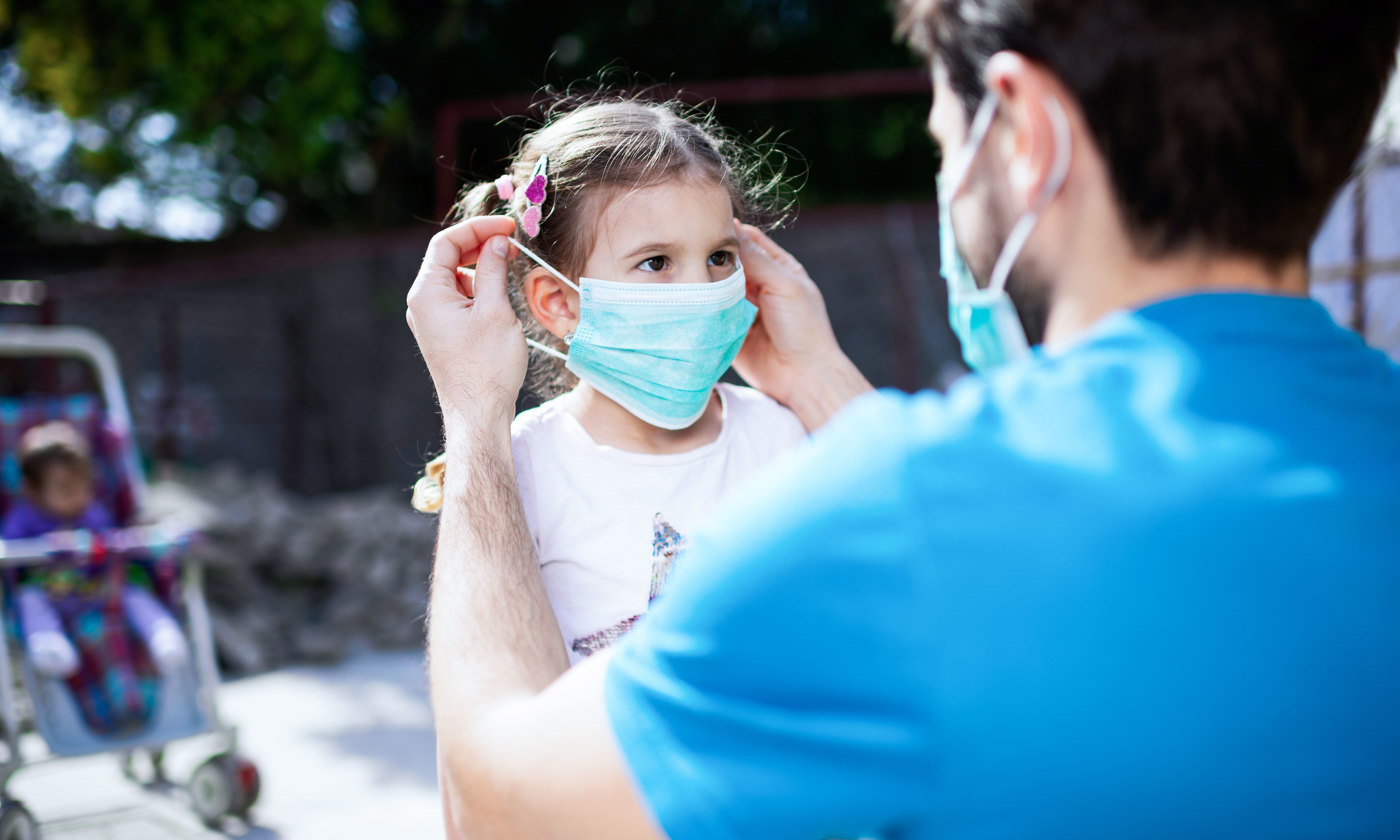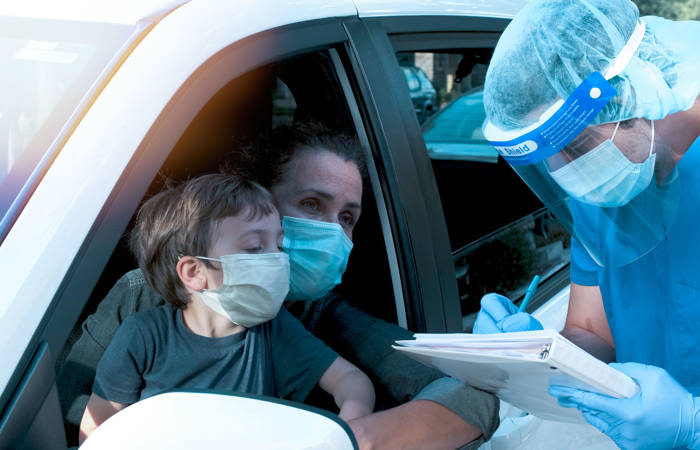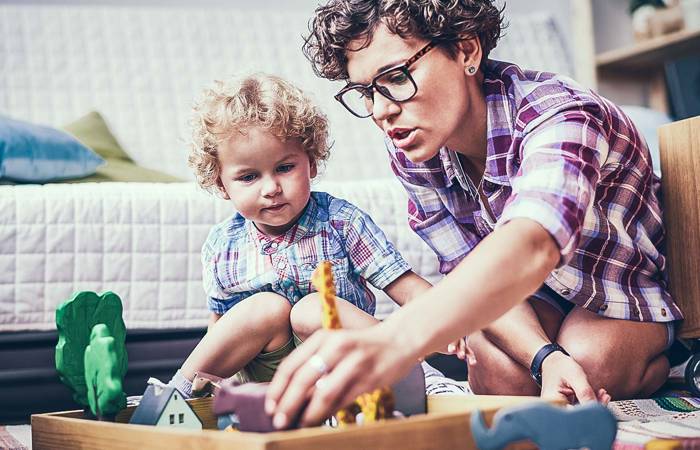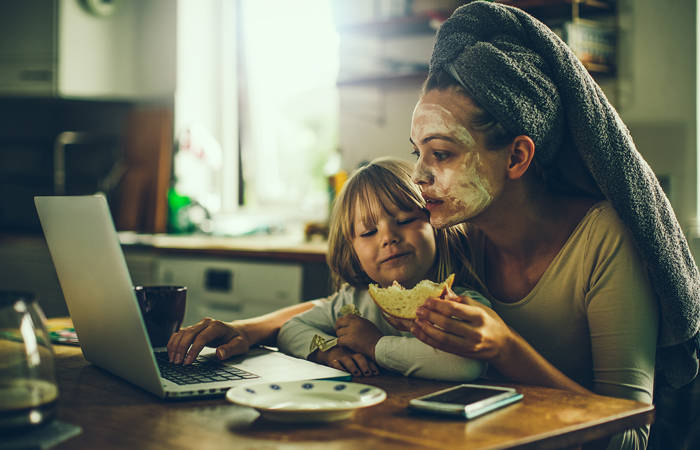Like what you see?
Sign up to receive more free parenting advice.
Thank you for subscribing to our newsletter!
Lifestyle

iStock.com/SanyaSM
The Covid19 pandemic has impacted Australian families in countless ways; from parents having to work from home, to children not being able to visit their favourite places or see family members and friends.
While different families are coping in different ways, Deakin University’s IMPACT (Institute for Mental and Physical Health and Clinical Translation) has taken on a national research project asking people to share their experiences.
The project, led by Dr Lesley Berk, aims to track the mood of the community and understand the different ways people are finding to cope.
“We’re analysing how people have adapted to the challenges of Covid-19 and will use this information to inform future programs and strategies that improve personal well-being. We’ll also look at the health fears and job insecurity brought about by the pandemic, along with social isolation, financial hardship and restrictions on movement, school routines and travel,” Dr Berk says.
"We know from previous global crises and evidence from the health and community service sectors that the mental health toll of this pandemic is likely to be substantial. We want to gather as much information as we can about the specific challenges faced by people during the pandemic and the different ways they have coped day to day.”
This valuable study will inform policy as well as ensure we have the practical, evidence-based tools we need to fully support Australians during this crisis and into the future.Dr Lesley Berk
Stay up to date with the latest news and articles from First Five Years
Thank you for subscribing to our newsletter!
The information will help the research team develop a range of measures to better protect the mental health and well-being of Australians both now and in the years ahead.
The Coping with Covid19 project will explore:
• The practical and emotional challenges Australians have experienced as a result the Covid-19 pandemic.
• The helpful or unhelpful coping strategies people use to try to deal with these challenges.
• Whether recommended coping strategies were useful.
According to Dr Berk, coping strategies include staying connected with family and friends, whether it be online or via the phone.
“Other strategies include setting a daily routine, such as regular exercise, a balanced diet, as well as a sleep, work and relaxation schedule. It’s also about engaging in enjoyable activities, reducing alcohol and other drug use, avoiding over-exposure to media and news reports, accessing community support and health professionals and getting help if they experience mental ill-health,” Dr Berk says.
“This valuable study will inform policy as well as ensure we have the practical, evidence-based tools we need to fully support Australians during this crisis and into the future,” Dr Berk said.
How two families are coping during the pandemic
Kayley and Matt
Kayley and Matt have two children, aged four and three. Living in Melbourne has been difficult for the family during the lockdown and Kayley says it’s been a struggle to keep the kids entertained and happy at all times.
“The kids really miss our usual daily routine. I’d always fill our days with a lot of activities, such as going to playgroup with my daughter or taking my son to preschool. We’d regularly visit my parents who live half an hour’s drive away. But that all stopped with the lock down and I found it very difficult to explain to the kids exactly what was going on. I found myself feeling quite low on some days but would always try to put on a happy face so that my feelings wouldn’t impact on the kids,” Kayley says.
“One of the positive things about lockdown during the pandemic was that my husband, Matt, has been working from home. He usually works long hours at the office. He also travels a fair bit. So it’s been good for the kids to have their father home full time. They have really loved that! Another positive thing is that now Matt sees how much work it is having two young children.
“Previously, he would make comments that being a stay at home mum is mostly 'fun and games'. But now he knows that I work with the kids non-stop. He has said many times, 'I don’t know how you do it by yourself!'. So I feel like he has a new appreciation for me! I like to think of myself as fairly strong, mentally as well as physically, but there have definitely been days when I felt like I wasn’t coping. I’m lucky I have my parents nearby, not that I could see them physically, but we talk a lot and they have been face-timing with the kids which has made a huge difference. I’ll be glad when this is over.”
Melanie
Melanie is a single mother in Sydney and has found the pandemic challenging but, in its own way, rewarding too. She has three children, aged six, three and two.
“At first I quite enjoyed not having to go out so much. Self-isolation for me wasn’t too much of a struggle in the beginning. But I used it as an opportunity to really reconnect with the kids. Prior to the pandemic, I would be racing all across the city, juggling my work, day care drop offs, visiting friends and family, trips to the park and the beach. I always made sure my days were very full because I always thought being at home all day was such a bore. But I used to do to a lot of the things I previously hadn’t made time for – for example, we’d spend plenty of time having fun in the kitchen, baking cookies and cakes. We’d never really had time for that before.
“I’m lucky that our neighbour has kids close in age to my kids, so we’d go between our houses a lot – they have a trampoline and we’d use that quite a lot! The pandemic has also made me appreciate a lot of things I’d taken for granted, mostly the freedom to do whatever I wanted to with the kids, whether it was doing a day trip to a country town, or spending a day at the beach. So there are a lot of things I just won’t be taking for granted anymore, especially our health. I feel lucky that we are all still healthy.”






